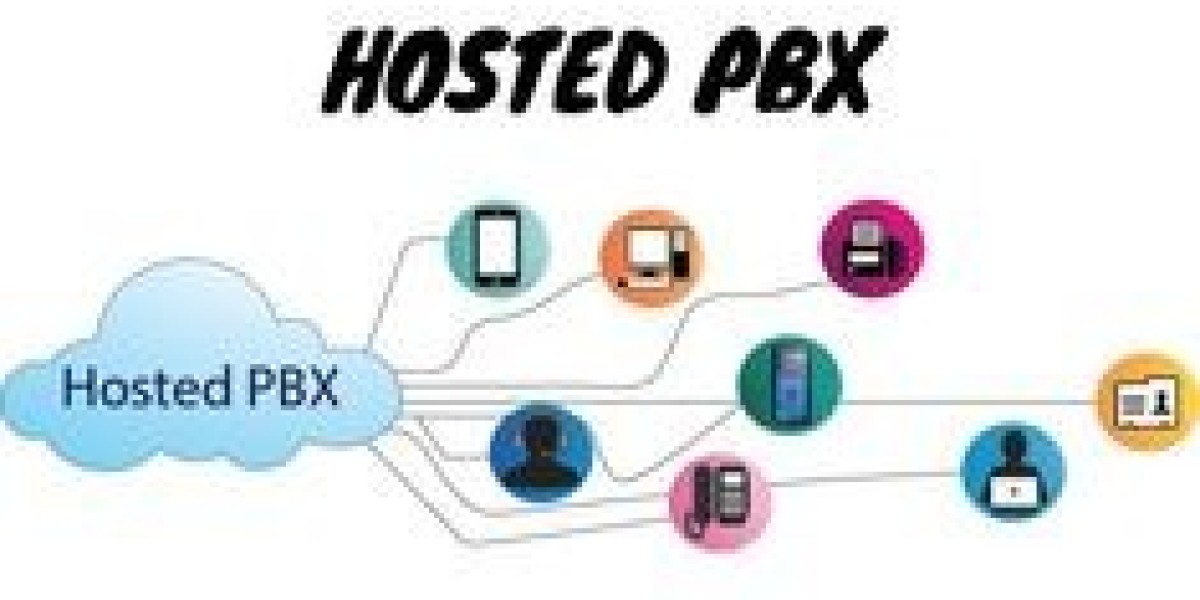The adoption of Hosted PBX (Private Branch Exchange) systems is rapidly reshaping how businesses manage their communications. By leveraging cloud-based technologies, Hosted PBX enables organizations to access advanced telephony features without the traditional need for costly on-premises hardware, offering scalable, flexible, and cost-effective solutions that support remote work and mobility in today’s dynamic business environment.
According to Straits Research, the global hosted PBX market size was valued at USD 13.49 billion in 2024. It is projected to grow from USD 15.8 billion in 2025 to reach USD 55.85 billion by 2033, expanding at a robust compound annual growth rate (CAGR) of 17.1% during this forecast period (2025-2033). This remarkable growth reflects accelerated adoption across multiple industries fueled by the increasing transition to cloud communications and a rising demand for unified communication platforms that combine voice, video, and messaging seamlessly.
Key Players Driving Innovation and Expansion by Country
In the United States, several major providers stand out, including RingCentral, AT&T, Verizon Communications, Cisco Systems, and 8x8. These companies lead with comprehensive hosted PBX service offerings and significant investments in cloud technology to support enterprise mobility and hybrid work models. The U.S. market dominates the global scene given its mature telecommunications infrastructure and widespread cloud adoption.
Europe is witnessing growing interest from telecom giants such as BT Group (UK) and Gamma Communications (UK), which are expanding their hosted PBX portfolios to meet increasing demand for unified communications and collaboration tools. European growth is also fueled by regulatory push toward digital transformation and advancements in 5G network infrastructure.
In Asia-Pacific, providers like Ozonetel Communications (India) and 3CX (Cyprus-based but prominent in APAC) are gaining ground by targeting the rapidly expanding small-to-medium business segments with affordable, scalable communication platforms suited for remote and geographically dispersed teams. The region is anticipated to post the fastest growth rates due to the surge in digitalization and cloud adoption across emerging economies.
Insights on Trends and Growth Drivers
The rise of remote and hybrid work arrangements after recent global disruptions has been a critical driver pushing enterprises to invest heavily in hosted PBX solutions. Businesses are benefitting from the flexibility to support employees anywhere with internet access without the burden of managing complex on-site phone systems.
VoIP (Voice over Internet Protocol) technology advancements remain at the core of hosted PBX evolution, enabling enhanced call quality, effective cost management, and integration with productivity applications such as CRM and unified communication suites. Further innovations involve embedding AI-driven features like automated call routing, speech analytics, and virtual assistants that optimize operational efficiency.
Unified Communications as a Service (UCaaS) integration within hosted PBX platforms has become a game changer, providing all-in-one communication ecosystems that merge voice, video conferencing, instant messaging, and file sharing. This consolidation enhances teamwork and responsiveness, benefiting sectors with dispersed workforce models.
Security remains a top priority due to growing concerns about data privacy and cyber threats. Hosted PBX providers are investing in robust encryption and compliance frameworks to secure business communications and build trust among enterprise customers.
Recent News and Competitive Landscape
Recent developments include RingCentral’s launch of advanced AI-powered collaboration tools integrated into its hosted PBX services to strengthen remote team productivity. Verizon Communications expanded its hosted PBX deployments in North America with partnerships focused on 5G enhancements to enable faster, more reliable connectivity for mobile users.
BT Group recently announced a strategic alliance with Microsoft Teams to deepen integration of their hosted PBX services with Microsoft’s collaboration platform, aiming to streamline user experience and widen adoption in European markets. Meanwhile, Ozonetel Communications rolled out new India-centric cloud communication platforms tailored to SMEs, emphasizing cost-effectiveness and ease of use.
Competitive dynamics reveal a growing trend of mergers, acquisitions, and partnerships aimed at expanding geographic footprint and technology capabilities. Providers are competing not only on feature sets but also on the scalability, security, and flexibility of their offerings to address evolving enterprise demands.
Future Outlook
The hosted PBX landscape will likely experience continued transformation driven by digital workplace evolution, technological innovation in communication protocols, and increasing cloud adoption globally. Enterprises across all regions seek scalable, integrated communication platforms to support agile business operations and remote workforce expansion.
Emerging technologies such as WebRTC and 5G network deployments will further enhance real-time communication capabilities, reducing latency and improving call quality, thereby encouraging more organizations to transition away from traditional telephony infrastructure.












